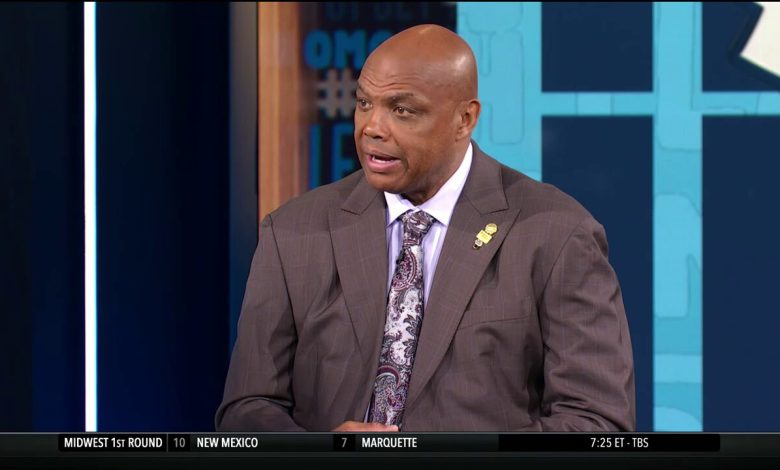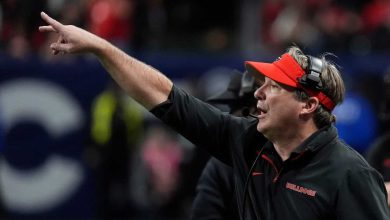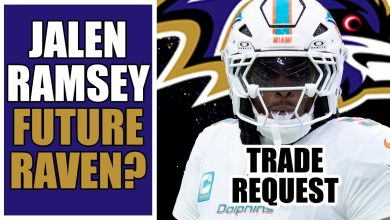Charles Barkley says, “I hate Alabama in football,” but he cheers for SEC teams in March Madness.

Charles Barkley is a name that resonates in the world of sports, not just for his legendary career as an NBA player but also for his unapologetic, larger-than-life personality as a sports analyst. Known for his candid and often humorous takes on everything from basketball to football, Barkley’s opinions are always delivered with his signature bluntness. However, in a recent interview, Barkley made headlines with a rather curious admission: “I hate Alabama in football,” but he roots for SEC teams in March Madness.
This statement encapsulates the complex relationship Barkley has with college sports, particularly the SEC (Southeastern Conference), of which both Alabama and Auburn—Barkley’s alma mater—are major members. For those who don’t know, Barkley played his college basketball at Auburn University, one of Alabama’s biggest rivals. The rivalry between Auburn and Alabama, known as the Iron Bowl in football, is one of the most storied and bitter rivalries in all of college sports. As someone who spent his college years at Auburn, Barkley’s rivalry with Alabama, especially in football, runs deep. But his support of SEC teams during March Madness adds an interesting layer to his persona, showing that even the most die-hard rivalries can be put aside when it comes to supporting the conference on the national stage.
In this article, we will dive deeper into Charles Barkley’s relationship with college football, the SEC, and his complex feelings toward Alabama and other SEC schools. We will also examine his rationale behind cheering for SEC teams in March Madness, the larger cultural context of college sports rivalries, and what Barkley’s words reveal about loyalty, competition, and sportsmanship.
The Charles Barkley-Alabama Rivalry: A History of Hate
Barkley’s feelings about Alabama in football come as no surprise to those familiar with his deep-rooted connection to Auburn University. Auburn and Alabama share one of the fiercest rivalries in all of sports, a rivalry that has transcended the gridiron and become a part of the cultural fabric of the American South. The Iron Bowl, played annually between the two schools, is more than just a game. For residents of Alabama, it’s a life-or-death affair, with emotions running high before, during, and after the game.
Barkley, who grew up in Leeds, Alabama, has always had a complicated relationship with Alabama. Even though he played basketball and not football, the Auburn-Alabama rivalry was impossible to ignore, and the two schools’ rivalry was a central part of his college life. Despite playing on the basketball court rather than the football field, Barkley’s allegiance to Auburn meant he had to embrace the rivalry, which often led to friction with fans and players alike who supported Alabama.
In the context of the Iron Bowl, Barkley’s statement of “I hate Alabama in football” reflects the intensity of the rivalry. For Auburn fans like Barkley, Alabama represents the enemy, the school that stands in the way of everything Auburn holds dear. Barkley’s use of the word “hate” is hyperbole, but it emphasizes how serious the rivalry is. It’s not just about football—it’s about school pride, regional identity, and longstanding animosity that has been passed down through generations.
Over the years, Barkley has spoken passionately about this rivalry, often with humor and a sense of light-heartedness. But at its core, Barkley’s rivalry with Alabama in football is deeply personal, as it is for any Auburn fan. This hatred isn’t just about competition on the field; it’s about the larger cultural and historical context of college football in the South.
The SEC: A Conference of Rivalries and Camaraderie
Despite his strong dislike for Alabama in football, Barkley’s feelings about the SEC as a whole are more nuanced. The SEC is one of the most successful and competitive conferences in college sports, particularly in football and basketball. The SEC is home to several of the country’s most storied football programs, including Alabama, Auburn, Georgia, LSU, Florida, and Tennessee, among others. Barkley’s Auburn Tigers are a key part of this dynamic, and while Auburn and Alabama may have their bitter rivalry on the football field, there is a larger sense of camaraderie among SEC schools when it comes to college basketball.
Barkley’s allegiance to the SEC in March Madness is a reflection of this larger sense of unity within the conference. While SEC schools may compete fiercely against one another throughout the regular season in both football and basketball, when it comes to March Madness, Barkley and many others in the South take pride in seeing their conference members succeed on the national stage. It’s a matter of conference pride—if an SEC team can win the NCAA Tournament, it’s a victory for the entire conference, not just one school.
In many ways, Barkley’s support for SEC teams during March Madness is a recognition of the SEC’s strength as a conference. Despite his animosity toward Alabama in football, Barkley understands that the SEC is a powerhouse in college sports, and it benefits everyone within the conference when SEC teams perform well on the national stage. This sense of unity and pride for the SEC transcends individual rivalries, and Barkley has embraced this during March Madness.
Barkley’s Complex Relationship with Rivalries
Charles Barkley’s comments about Alabama and SEC basketball teams highlight a common dynamic in sports culture: the complexity of loyalty. It’s easy to assume that loyalty to a college program or a conference means unwavering support across all sports, but as Barkley’s comments illustrate, loyalty is not always so black-and-white. Barkley’s feelings toward Alabama football are shaped by years of rivalry, but his feelings toward SEC basketball teams reflect a broader loyalty to the conference as a whole.
In college sports, especially within powerful conferences like the SEC, rivalries often extend far beyond just individual teams. Fans of SEC schools, regardless of their own team’s status, take pride in the conference’s success as a whole. This sense of rivalry does not preclude a sense of pride in seeing other schools within the conference succeed. Barkley’s support for SEC teams during March Madness is a reflection of this nuanced view of rivalry and loyalty. While he may despise Alabama in football, he recognizes the importance of conference success and the collective identity that comes with it.
This layered approach to loyalty is something that many fans can relate to. For instance, fans of schools in the Big Ten, ACC, or Pac-12 may have rivalries with specific schools, but they still root for other teams in their respective conferences to do well in tournaments like March Madness. It’s a recognition that a strong showing by one school reflects positively on the entire conference, enhancing its reputation and future recruiting prospects.
Barkley’s Influence on SEC Basketball
Barkley’s support for SEC teams in March Madness is also a testament to the improving state of SEC basketball. For many years, the SEC was primarily known for its dominance in college football, with basketball taking a backseat. However, in recent years, SEC basketball has steadily grown in stature. Schools like Kentucky, Florida, LSU, and Auburn have all made significant strides in basketball, and the conference as a whole is now considered one of the toughest in the nation.
Barkley’s enthusiasm for SEC teams in March Madness also reflects his belief in the future of SEC basketball. With teams like Auburn making deep runs in the tournament and schools like Kentucky and LSU consistently in the hunt for national titles, the SEC is establishing itself as a legitimate contender in college basketball. As one of the most prominent former SEC athletes, Barkley’s support is a powerful endorsement for the conference and its basketball programs.
Moreover, Barkley’s role as an analyst for TNT’s NBA coverage gives him a unique perspective on the state of college basketball. He is intimately familiar with how college players transition to the professional level, and his perspective on SEC basketball is informed by his deep knowledge of the game. His support for SEC teams in March Madness is an acknowledgment of the growing competitiveness of the conference and the caliber of players it produces.









